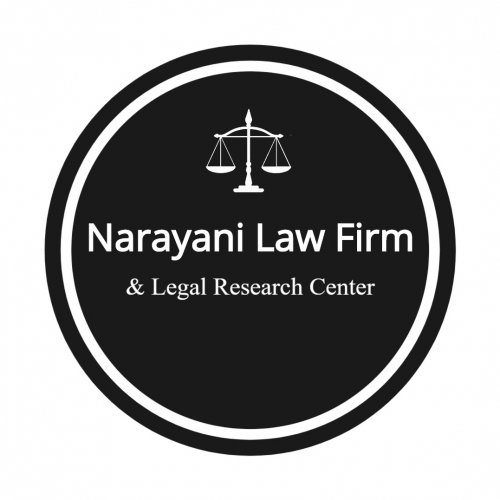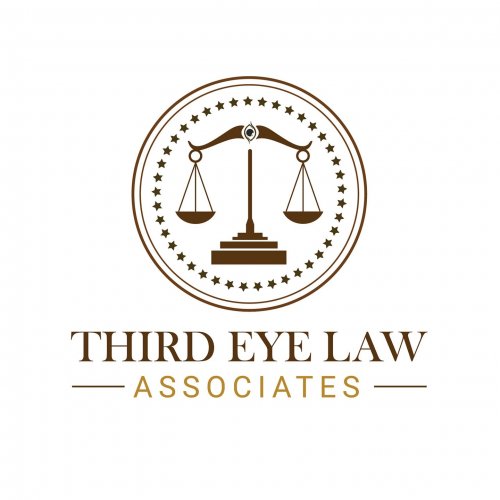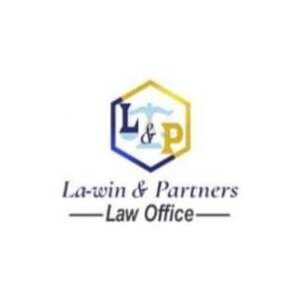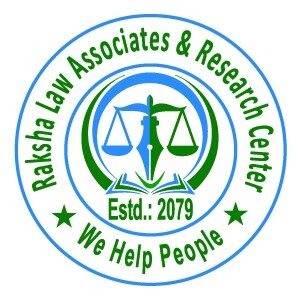Best White Collar Crime Lawyers in Nepal
Share your needs with us, get contacted by law firms.
Free. Takes 2 min.
Or refine your search by selecting a city:
List of the best lawyers in Nepal
About White Collar Crime Law in Nepal
White collar crime in Nepal encompasses non-violent crimes that typically involve deceit, breach of trust, or concealment to achieve financial or professional gain. These crimes are usually committed by individuals in professional positions and include activities like fraud, embezzlement, insider trading, bribery, and money laundering. Nepal's legal system, which comprises various acts and regulations, aims to identify, prevent, and prosecute these offenses while ensuring justice and financial integrity within the society.
Why You May Need a Lawyer
Engaging with cases of white collar crime can be complex and overwhelming due to the intricate nature of financial transactions and legal procedures. You may need a lawyer if you find yourself in situations such as:
- Facing allegations or charges related to financial fraud or embezzlement.
- Being a victim of a white collar crime, requiring legal action to recover losses.
- Involvement in corporate disputes that could potentially lead to criminal investigations.
- Compliance with financial or commercial regulations where misunderstandings could result in legal issues.
- Legal guidance during audits and investigations by government bodies.
Having a lawyer with expertise in white collar crime is crucial for navigating the legal landscape, protecting your rights, and achieving favorable outcomes.
Local Laws Overview
In Nepal, the key legal provisions addressing white collar crimes are outlined in various statutes and regulations, including:
- Corruption Prevention Act: Targets corrupt practices within both public and private sectors.
- Banks and Financial Institutions Act: Addresses offenses like embezzlement and fraud within banking sectors.
- Foreign Exchange Regulation Act: Deals with unauthorized foreign exchange transactions and related fraud.
- Income Tax Act: Involves regulations against tax evasion and other financial malpractices.
- Special Court Act: Establishes special courts for addressing high-profile cases, including white collar crimes.
Frequently Asked Questions
What constitutes a white collar crime in Nepal?
White collar crime in Nepal includes non-violent crimes such as fraud, embezzlement, insider trading, and bribery, often committed by individuals in professional or influential positions for financial gain.
How are white collar crimes prosecuted in Nepal?
Such crimes are prosecuted under various statutes like the Corruption Prevention Act, employing special courts established for economic offenses, ensuring thorough investigations by authorities like the Commission for the Investigation of Abuse of Authority (CIAA).
What penalties can one face if found guilty of a white collar crime in Nepal?
Penalties vary depending on the severity and nature of the crime but can include fines, imprisonment, asset forfeiture, and reputational damage, alongside professional and legal ramifications.
Can victims of white collar crime in Nepal seek compensation?
Yes, victims can seek legal redress to recover any financial losses through civil lawsuits or when the court delivers judgment in criminal proceedings.
Is it possible to settle white collar crime cases out of court in Nepal?
In some instances, cases can be settled outside court through negotiation and mutual agreement, though this depends on the specific circumstances and severity of the case.
What roles do lawyers play in white collar crime cases?
Lawyers provide legal representation, ensure compliance with legal procedures, help in understanding complex laws, and advocate for rights whether defending against charges or seeking justice as victims.
How can I find a qualified lawyer specializing in white collar crime in Nepal?
Seek referrals, look for reputable law firms, or consult associations such as The Nepal Bar Association for specialized legal assistance in white collar crime.
Are companies also held liable for white collar crimes in Nepal?
Yes, companies can face charges for crimes committed by their employees or executives, especially if they contribute to or fail to prevent illegal activities.
How do investigations in white collar crimes work?
Investigations typically involve gathering financial records, conducting audits, interviewing involved parties, and collaborating with regulatory bodies to substantiate claims.
What preventive measures can be taken against white collar crimes?
Implementing regular audits, ensuring stringent accounting controls, promoting ethical workplace environments, and complying with legal standards are essential measures.
Additional Resources
In dealing with white collar crime in Nepal, several resources can be helpful:
- Commission for the Investigation of Abuse of Authority (CIAA): The primary agency for investigating corruption-related crimes.
- Nepal Rastra Bank: The central bank, providing guidelines on preventing financial fraud and malpractice.
- The Nepal Bar Association: Offers contact details for lawyers and legal experts specializing in white collar crime.
- Department of Money Laundering Investigation: Focuses on combating money laundering activities and related offenses.
Next Steps
If you suspect involvement in or are affected by a white collar crime, consider the following steps:
- Document all relevant information and evidence pertaining to the case.
- Consult with a qualified lawyer specializing in white collar crime for initial legal advice.
- Pursue appropriate legal channels, whether filing a complaint, engaging in settlements, or defending against accusations.
- Engage in preventive measures to safeguard against future incidents.
Taking prompt and informed action can significantly influence the outcome and resolution of white collar crime cases.
Lawzana helps you find the best lawyers and law firms in Nepal through a curated and pre-screened list of qualified legal professionals. Our platform offers rankings and detailed profiles of attorneys and law firms, allowing you to compare based on practice areas, including White Collar Crime, experience, and client feedback.
Each profile includes a description of the firm's areas of practice, client reviews, team members and partners, year of establishment, spoken languages, office locations, contact information, social media presence, and any published articles or resources. Most firms on our platform speak English and are experienced in both local and international legal matters.
Get a quote from top-rated law firms in Nepal — quickly, securely, and without unnecessary hassle.
Disclaimer:
The information provided on this page is for general informational purposes only and does not constitute legal advice. While we strive to ensure the accuracy and relevance of the content, legal information may change over time, and interpretations of the law can vary. You should always consult with a qualified legal professional for advice specific to your situation.
We disclaim all liability for actions taken or not taken based on the content of this page. If you believe any information is incorrect or outdated, please contact us, and we will review and update it where appropriate.
Browse white collar crime law firms by city in Nepal
Refine your search by selecting a city.















